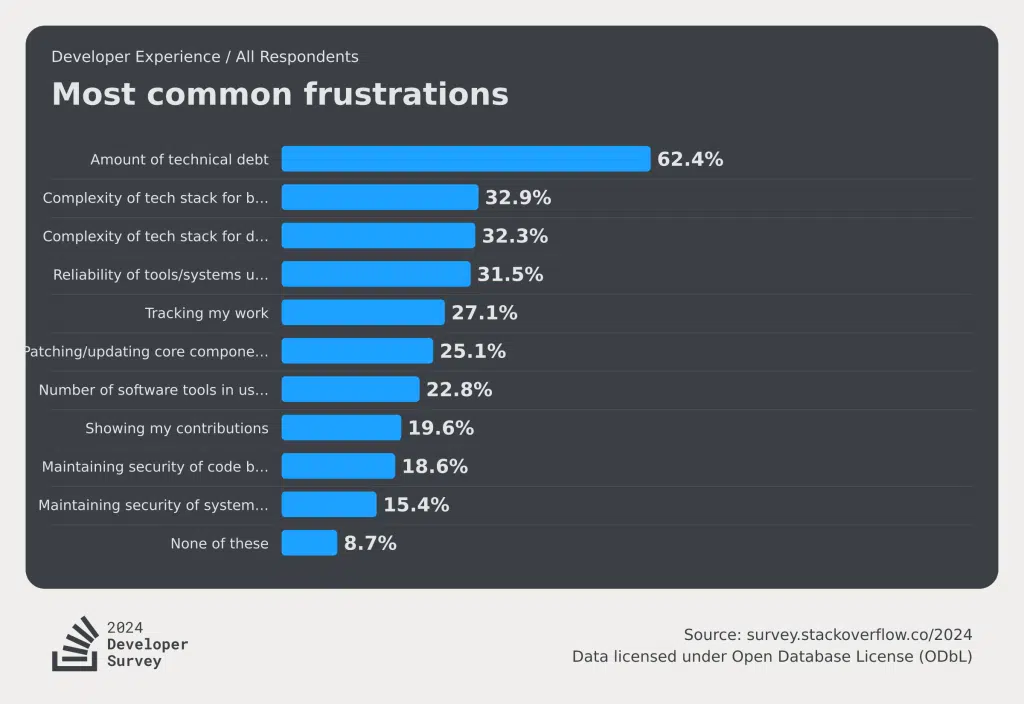this post was submitted on 21 Sep 2024
192 points (100.0% liked)
Programming
17727 readers
368 users here now
Welcome to the main community in programming.dev! Feel free to post anything relating to programming here!
Cross posting is strongly encouraged in the instance. If you feel your post or another person's post makes sense in another community cross post into it.
Hope you enjoy the instance!
Rules
Rules
- Follow the programming.dev instance rules
- Keep content related to programming in some way
- If you're posting long videos try to add in some form of tldr for those who don't want to watch videos
Wormhole
Follow the wormhole through a path of communities [email protected]
founded 2 years ago
MODERATORS
you are viewing a single comment's thread
view the rest of the comments
view the rest of the comments


Technical debt is a real doozy. There's no value for the higher ups in fixing it, so nobody does.
New features just take longer and longer to add, under a teetering pile of your own shit.
I think part of the problem is the ideal underlying structure for your project doesn't really reveal itself until several years in, and by then it's a nice to have for some other time that never arrives.
Tech debt is like a hole in your roof that many teams don't start trying to fix until water is flooding in. Companies missing the business value in addressing tech debt leads to perverse incentives for developers where they are encouraged to cram new features into the product and then leave for another job in 2-3 years before the consequences come knocking.
And the replacement people all just assume that we're supposed to be up to our waists in water.
Fixing? We just moved to the kitchen!
Well there is, it's just long term value that they don't even understand.
Really you should just make fixing technical debt part of your regular job. Don't ask for permission, just do it. (Except for really big things obviously.)